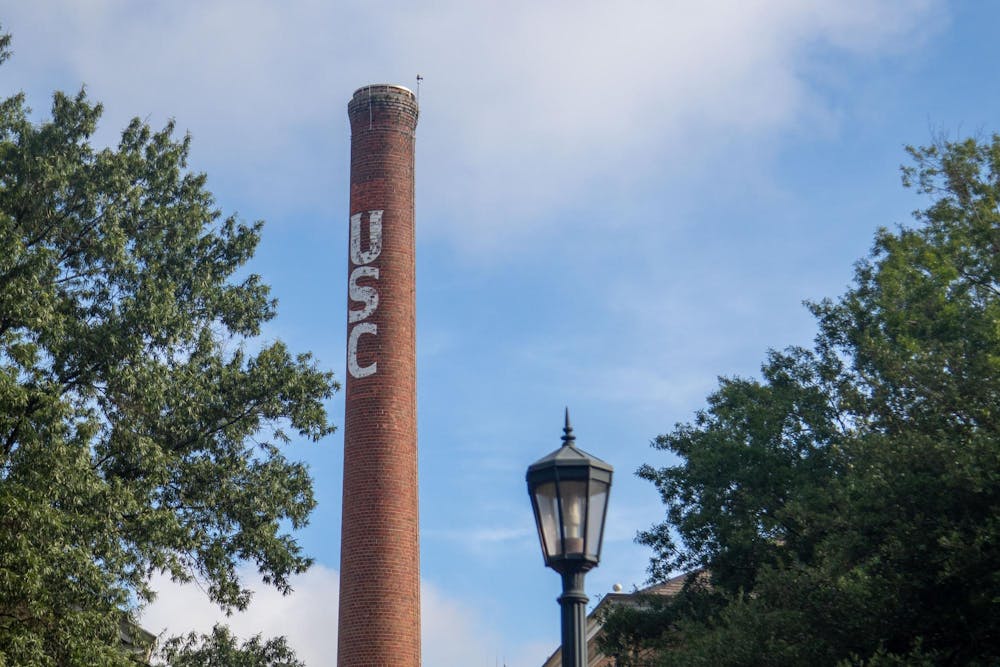The University of South Carolina board of trustees voted to approve the university's budget for the upcoming 2025 fiscal year at its meeting on June 19. The fiscal year for all state institutions began on July 1, 2024, and ends on June 30, 2025.
This upcoming year, USC is expected to see a 10.6% increase in revenue from the previous fiscal year, going from $1.476 billion to $1.633 billion. Expenditures are also projected to increase by 10.8% from last year, going from $1.473 billion to $1.632 billion. The university is still expected to have more revenue than expenditures.
Because of USC’s increase in revenue, as well as support from South Carolina lawmakers, tuition for undergraduate in-state students was able to remain the same for the sixth year in a row for the Columbia campus and for the seventh year in a row for all other colleges within the USC system.
Out-of-state students will see a 3.9%, or $503, increase in their tuition rates for the upcoming academic year.
University of South Carolina President Michael Amiridis said the budget for the new fiscal year, with the slight increase to out-of-state tuition rates, helps students have the best experience at USC.
“This budget ensures we meet the expectations of our students to provide an affordable, world-class education and a superior student experience rivaling any other school in the nation,” Amiridis said in a statement to The Daily Gamecock.
All of the academic units at USC will see an increase in their net funding with the Darla Moore School of Business seeing one of the largest.
The Darla Moore School of Business will see an increase of approximately $1.4 million for the upcoming school year and the net funding for the other colleges will increase by approximately $1.97 million.
Most of the university’s budget goes toward academic units, including college operating costs, instruction and faculty and staff wages.
“Almost three-fourths (74%) of USC’s budget goes to academic units to help provide a first-class education for students by hiring and retaining top-notch faculty and staff, providing resources for students and bolster cutting-edge research being done by those units,” university spokesperson Collyn Taylor said in a statement to The Daily Gamecock.
After the South Carolina legislature approved the state’s budget on June 26, the school also received an increase for recurring state funds, which means these funds are provided for multiple years instead of just one time.
USC received $15 million for tuition mitigation to help offset the continued in-state tuition freeze and $4.85 million total in recurring funds for the Joseph S. Rice School of Law, Anne Frank Center and Palmetto Poison Control Center.
Out of the $4.85 million total, $3 million will be provided to the School of Law for new programs, $500,000 in recurring funds will be used by the Anne Frank Center and $350,000 will be given to the Palmetto Poison Control Center.
The university also received a total of $106 million from the state for one-time funding for a variety of programs. These university programs include the Civil Rights History and Research Center, Anne Frank Center and the Carolina Internship Pilot Program.
From the total of $106 million, $4.5 million is for the internship pilot program, $500,000 is for the Anne Frank Center and $1 million is earmarked for the Civil Rights History and Research Center.
The state also earmarked one-time capital funding of an unknown amount for the on-campus health sciences building that is slated to open in 2027.
Thad Westbrook, the chair of the board of trustees, said many of the improvements and special programs that are being offered are because of state lawmakers.
“We’re thankful to the governor and members of the General Assembly for continuing to prioritize higher education. By giving us the resources needed to fulfill our mission, more South Carolina students are given the opportunity to pursue their dreams and contribute to the state’s bright future,” Westbrook said in a statement to The Daily Gamecock.


